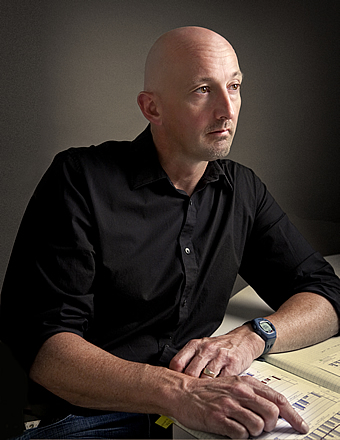 Conventional drugs used to treat virus infections target only a single virus at any one time, and, since these viruses can mutate rapidly, these drug treatments are often associated with virus resistance to treatment. A new approach that we are developing targets critical functions in the host instead. Since these functions are involved in supporting, or defending against, multiple different viruses, these approaches offer the potential to eliminate a large number of virus infections using a single drug. We also predict that these drugs will be less susceptible to the development of viral drug resistance. I will discuss our progress toward identifying host targets for these so-called broad spectrum antiviral drugs.
Conventional drugs used to treat virus infections target only a single virus at any one time, and, since these viruses can mutate rapidly, these drug treatments are often associated with virus resistance to treatment. A new approach that we are developing targets critical functions in the host instead. Since these functions are involved in supporting, or defending against, multiple different viruses, these approaches offer the potential to eliminate a large number of virus infections using a single drug. We also predict that these drugs will be less susceptible to the development of viral drug resistance. I will discuss our progress toward identifying host targets for these so-called broad spectrum antiviral drugs.
Background Info.
John A. T. Young, a Professor in the Nomis Foundation Laboratories for Immunobiology and Microbial Pathogenesis, studies the cell biology of virus infection and anthrax intoxication. His laboratory is identifying and characterizing cellular factors that contribute to the early steps of infection by HIV and other retroviruses, influenza virus, and filoviruses such as Ebola virus. These studies are giving novel insights into virus-host interactions and are suggesting new therapeutic strategies for combating virus infection. The Young laboratory has also identified both known cellular receptors for anthrax toxin. Current research in the lab is aimed at understanding how these receptors, along with other cellular factors, regulate anthrax toxin entry into cells. Soluble versions of a cellular receptor are also being developed as receptor decoys to efficiently neutralize anthrax toxin.
A major goal of our work is to reveal how host cell proteins either contribute to or defend against infection by important human microbial pathogens, such as HIV, influenza virus, Ebola virus and the bacterium that causes anthrax. Knowledge of the roles played by this cellular machinery provides new insights into the cell biology of microbial infections and could suggest new broad-spectrum antimicrobial approaches.”
A major focus of Young’s work is on the HIV virus. HIV/AIDS continues to be a serious global problem. The virus can remain “hidden” in a latent form in infected individuals for years, even after long-term suppression with highly active antiretroviral therapy. Moreover, viral drug resistance represents a formidable problem, creating an urgent need for new classes of antiretrovirals.
Education
- B.Sc., Biochemistry, University of Dundee, United Kingdom
- Ph.D., Human Genetics, University College London and Imperial Cancer Research Fund, United Kingdom
- Postdoctoral Fellow, University of California San Francisco
Awards and Honors
- Eli Lilly and Company Research Award in Microbiology and Immunology
- Fellow, American Academy of Microbiology
